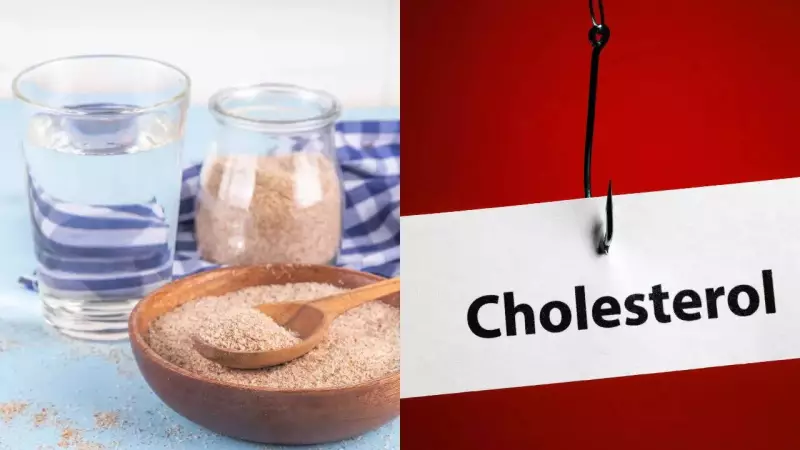
High cholesterol remains a formidable enemy in the fight against heart disease and stroke. While medication is crucial for many, a powerful, natural ally is gaining scientific backing: psyllium husk. This humble, plant-based fibre, derived from the seeds of Plantago ovata, is emerging as a significant player in managing cholesterol levels through simple dietary changes.
The Science Behind Psyllium's Cholesterol-Fighting Power
Groundbreaking research published in the American Journal of Clinical Nutrition provides compelling evidence for psyllium's benefits. The study demonstrated that consuming 10 grams of psyllium husk daily led to an average reduction of 6-7% in LDL ("bad") cholesterol compared to a placebo. This reduction is considered clinically meaningful, especially for individuals dealing with mild to moderate cholesterol elevation.
Psyllium husk is a form of soluble fibre that works its magic in the digestive system. When mixed with water, it forms a thick gel that acts like a sponge for cholesterol. This gel binds to bile acids, which are produced by the liver using cholesterol. By preventing the reabsorption of these bile acids, psyllium forces the liver to use more circulating cholesterol to produce new ones, effectively lowering the overall levels of harmful LDL cholesterol in the bloodstream.
More Than Just Cholesterol: Holistic Health Benefits
The advantages of incorporating psyllium husk into your routine extend far beyond cholesterol management. Its soluble fibre content offers a suite of nutritional benefits that contribute to overall well-being.
Psyllium husk aids in blood sugar regulation by slowing down the absorption of glucose after meals, which helps maintain stable energy levels. It supports weight management goals by adding bulk to the diet without extra calories, promoting a feeling of fullness that can reduce overall calorie intake. Furthermore, it acts as a prebiotic, nourishing the beneficial bacteria in your gut. A healthy gut microbiome is increasingly linked to improved lipid metabolism and reduced inflammation, both critical factors for long-term heart health.
How to Safely Add Psyllium Husk to Your Daily Diet
Integrating this powerful fibre into your life is straightforward. The most common method is the powder form. Simply mix 1–2 teaspoons (approximately 5 grams) into a large glass of water or juice, stir vigorously, and drink immediately before it thickens. It is crucial to follow this with another glass of water. For the cholesterol-lowering effect observed in studies, taking this dose twice daily is recommended.
For those seeking convenience, psyllium is also available in capsule or granule forms from reputable brands. You can also get creative by sprinkling the powder into smoothies, oatmeal, yoghurt, or soups. Remember to always increase your water intake when consuming psyllium to ensure it works effectively and to prevent any potential digestive discomfort.
It is vital to start with a small dose to allow your body to adjust. Most importantly, psyllium husk is not a replacement for prescribed cholesterol-lowering medication. Always consult your healthcare provider before starting any new supplement, especially if you have existing digestive issues, difficulty swallowing, or are on other medications, as psyllium can affect drug absorption.
Consistency is the key to reaping the benefits. Making psyllium a daily habit, combined with a heart-healthy lifestyle that includes limiting saturated fats, eating more fruits and vegetables, and staying physically active, offers the strongest defense for your cardiovascular health.
Disclaimer: This article is for informational purposes only and should not be considered medical advice. Please consult a healthcare professional before making any changes to your diet, medication, or lifestyle.






